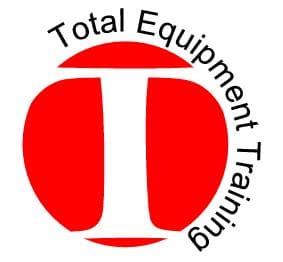By becoming a certified mobile crane operator, you will become eligible for operating a crane on construction and building sites where heavy materials are moved frequently. The job of a crane operator is hard, yet rewarding work. It requires a considerable amount of practice and professional training. Here’s everything you need to know to become a certified crane operator.
Steps to Become a Crane Operator
Cranes are advanced, powerful, and expensive machines that require knowledge in science, reading, technology, and math to be able to run the crane operation smoothly and safely. The following steps will help you successfully become a crane operator:
1. Prepare For Your Crane Testing
Total Equipment Training offers many great resources, tests, study guides, etc. Take our free practice tests and search through our other freebies! When you are ready to take the next step in your career in crane operation, review our study guides to prepare for your crane testing and certification.
2. Complete Testing
Periodically, Total Equipment Training will offer in-person exam applications for CCO certification. If you do not see any dates scheduled, then please fill out the form and wait for us to respond. We offer comprehensive crane training & testing services for both written and practical CCO examinations.
3. Update Your Resume
Updating your resume to showcase those skills you learned from your testing and apprenticeship. Show why you are qualified and confident for the crane operator job you are applying to.
4. Apply for a Crane Operator Job
Remember to create networking opportunities through your apprenticeship program, trade school, online communities, etc. Attempt to tap into your network for potential job opportunities. You can also find job openings on the most popular job listing sites such as Indeed, ZipRecruiter, SimplyHired, and LinkedIn. Don’t forget to set up the alerts for new job notifications.
How Long Does It Take to Become a Crane Operator?
Depending on the training program and the type of crane you wish to operate, it can take anywhere from a couple of months to a couple of years to become a crane operator. Most certification training courses last between 1-2 months. Nevertheless, most heavy equipment employers look to hire experienced operators which means you’ll need on-the-job training or an apprenticeship under a certified operator.
How Much Does a Crane Operator Earn in the USA?
As of June 2022, a crane operator earns an average of $23.61 per hour in the US. This means a crane operator earns an average base salary of $55,005 per year. Furthermore, they also average an extra $7,500 in annual overtime. Some crane operator employers in the USA offer additional benefits such as 401(k) and insurance.
Various sources report a wide range of estimates for the salary of an operator in the USA while these estimations are heavily dependent on the location and the experience of the operator. A certified crane operator working in New York City, for example, could earn up to $500,000, including overtime pay and benefits.
Read more about the 3,201 crane operator salaries reported to Indeed.com.
Ready to take the first steps towards being a local crane operator? Take a Free NCCCO Mobile Crane Certification Practice Test
Requirements to Become a Certified Crane Operator
There are a few minimum requirements to become a certified crane operator:
- Must be at least 18 years old
- Pass the written and practical crane exams
- Follow the certifying institution’s code of ethics and substance abuse policy
Read more about the certification requirements on our blog’s NCCCO Crane Certification Policy.
Getting Mobile Crane Certified
- Study for your NCCCO crane training program.
- Choose a mobile crane training session or take a remote crane training session at a work site.
- Pass two written examinations. One is a Core Exam and the second is a Specialty Exam that may be any of the following:
- Lattice Boom Crawler Cranes (LBC)
- Lattice Boom Truck Cranes (LBT)
- Telescopic Boom Cranes -Swing Cab (TLL)
- Telescopic Boom Cranes – Fixed Cab (TSS)
The Core Examination comprises 90 multiple choice questions along with time allotted for the exam is 90 minutes. The Specialty Examination will be comprised of 26 multiple choice questions to be finished within 60 mins.
- After successfully passing these aforementioned exams, you are required to pass the practical exam within one year.
Requirements For Crane Re-Certification
A crane operator is required to get re-certified after 5 years. They are also required to get their recertification in the last 12 months of their active license. A certified crane operator that waits too long to get recertified (after their license’s expiration date) must go through the process from the start.
How Much Does It Cost to Get Certified as a Crane Operator?
Total Equipment Training offers accreditation through NCCCO. To become a certified operator, you will need to undergo crane operator training, as well as take, a written and practical exam. Training costs will vary based on the method of training. Employers are required to provide training for their operators. Total Equipment Training provides site-specific crane training and, if needed, certification.
Do You Need a CDL to Operate a Crane?
If your job requires that you drive the crane on the open road, you will need a CDL. It is possible to have one person drive a crane to a location and another person actually operate the crane. This is very counterproductive and wasteful, so we recommend employees operating cranes be licensed and trained in all roles.
Job Description For A Crane Operator
Apart from various types of cranes, equipment operators such as tower crane operators, and mobile crane operators require specialized training, you will be handling the complex tasks of levers, wheels, and pedals for moving heavy materials safely. The basic task of a crane operator includes moving up the heavy machinery along with other substances with a crane, which is specially built for that purpose.
Additionally, besides operating the equipment, you will also need to ensure whether the operations are been undertaken safely to check out the equipment maintenance comprising of keeping the safety and maintenance logs.
Necessary Skills To Become A Crane Operator
Critical Thinking
Crane operators have the liability to inspect the situation and maintain the safety standards as per the working conditions. So, the crane operator should possess the skill to recognize the risk associated with the working environment and take vital decisions.
Equipment Repairing
While utilizing the crane for the construction job, the crane equipment might require some minor maintenance like fixing up the hoist mechanisms, and restoring hooks. If a crane operator knows resolving those minor maintenance, it can improve efficiency and save time, without the need of calling heavy equipment engineers.
Punctuality
The construction projects require finishing up within the given deadlines, but some factors should be taken into consideration like bad weather conditions and various other factors, impacting the time limit. Crane operators have to be punctual as they need to ensure arriving early with the beginning of daily operations and finishing it up daily.
Verbal Communication
Verbal communication is the process that involves letting someone understand your views effectively through communicating verbally. The crane operators should possess good verbal communication skills to convey to the construction workers the safety standards.
Teamwork
The job of a crane operator also requires teamwork to finish up the construction jobs as per the deadlines. The job includes speaking with the construction workers to determine what material to shift in which place, and talking to other crane operators to split up the task among the operators.
Hand-eye Coordination
Hand-eye coordination involves the procedure of converting the message through transfers and sights for performing the task with their hands. There is an essential need for the crane operators to possess excellent hand-eye coordination for task visualization and then giving the right-hand movements for shifting the materials while using levers and buttons.
Attention To Detail
A crane operator has to be attentive to minor details to search for moving materials safely and errors along with ensuring the prevention of materials before lifting those. As a crane operator, being attentive to each detail aids you in measuring the widths and distances for safely shifting the materials around buildings, power lines, or various other components.
Manual Dexterity
An advanced level of manual dexterity is needed for crane operators as it supports them in utilizing their hands to use multiple levers efficiently. Manual dexterity skills help in operating large cranes and shifting the materials during fluid motion.
Are Crane Operators in Demand?
The market has been experiencing a rise in the demand for certified operators for some time now. Operator jobs are expected to mark a growth rate of 8% between 2014 and 2024, according to a prediction made by the Bureau of Labor Statistics. And, accounting for the growing high-tech infrastructure projects that require heavy lifting, this prediction seems logical.
Is Being a Crane Operator Dangerous?
Operating a crane is a safe job when the equipment is properly maintained and safety procedures are followed. The most dangerous parts of being an operator are electrical/power hazards, overloading, and falling materials. All of these hazards can and should be managed through planning, preparation, adequate training, and safeguards.
Should I Become a Crane Operator?
Do you:
- Like working with heavy equipment?
- Have good depth perception?
- Enjoy working with people?
- Enjoy traveling?
- Enjoy working with your hands?
Then a career as an operator might be a good fit for you! You will have the opportunity to grow a stable, fulfilling, and challenging career.
Operating Environment For A Crane Operator
As a crane operator aspirant, you might be wondering about the working environment, which is been cleared out here in this blog. Mostly you will be found working alone in the cabin of your crane, where the environment might seem chaotic and noisy. You also require to have a keen eye for safety purposes as the job site in which you are operating might be having the maximum chances of hazards as it will be including materials filled with powerful and large heavy equipment.
Crane Operator Training at Total Equipment Training
All aspects of industrial crane operator training are provided by Total Equipment Training nationally. Our training capabilities range from small individual equipment to very large plant scale tasks. Total Equipment Training provides your employees with the training they need to pass both the written and practical NCCCO crane operator certificate exams.
Contact us today for more information on how to tailor a crane operator training program for your needs, skill levels, and equipment.






